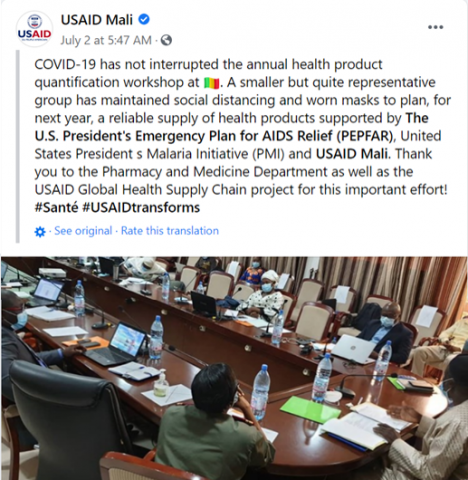However, FASP advisors encountered many challenges while facilitating FASP activities remotely, including more time and effort required for planning. Remote facilitation prevented or hindered facilitators from doing basic administrative tasks that are easily done during in-person sessions, such as verifying that participants had downloaded software to their computers in advance, noting body language and verifying that participants are fully engaged, and pairing up participants who are doing well with those who are struggling.
To overcome these challenges related to online facilitation, GHSC-PSM is developing a training tracker tool for self-assessment to better monitor the progress of FASP participants, limiting the number of participants in online activities, and spending more time on advance planning. To limit screen fatigue and account for the fact that some participants were caring for children at home, the project also adapted to online by breaking FASP activities into smaller bits of time but over an extended schedule.
Time differences meant needing to be online at odd hours, including as early as 3:00 am on the East Coast of the United States to lead FASP activities in Asia. Online facilitation required a more structured approach; facilitators found it much more difficult to adapt and go with the flow' as they would at times do during in-person sessions. Some basic technology challenges also remain, including predictable connectivity issues and the need for participants to learn to use new online platforms to participate, share screens and more.
Other challenges arose regarding client expectations. Prior to COVID, planning for international travel and in-person support had involved a standard scope of work that USAID was familiar with and could readily approve. Switching to remote support required a redesign of activities and negotiations with the client for approval. Despite travel restrictions and facilitators' concerns about COVID transmission and quarantining, some countries still requested in-person support that required travel, even though various technology platforms are available. The project uses Microsoft Teams for internal activities and had to negotiate with partners the technology to use for sessions with outside participants. For new platforms, licenses may be required, and facilitators at times struggled to utilize new features like breakout rooms.
